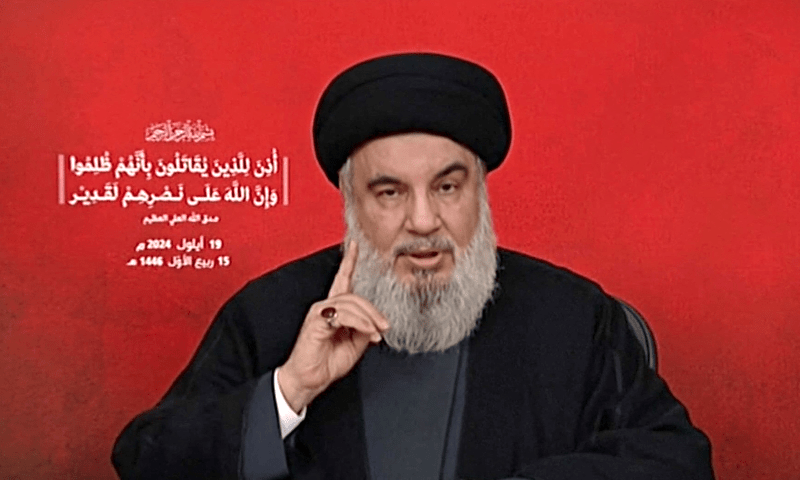
[ad_1]

BEIRUT: Israel bombed Lebanon on Thursday, after two waves of explosions targeted its communications systems, killing at least 37 people across the country.
On Thursday, the Israeli military claimed it struck six Hezbollah “infrastructure sites” and a weapons storage facility overnight in southern Lebanon.
Lebanon’s National News Agency also reported Israeli strikes and shelling on several towns in the south.
Meanwhile, panic-stricken Lebanese have tossed power banks, or sleep with mobile phones in another room after hand-held devices used by Hezbollah operatives detonated two days in a row.
Panicked citizens toss power banks, mobile phones following carnage of pager blasts
Scenes of carnage circulating on social media, which shocked many in Lebanon, showed injured, bloodied people lying in the street or falling to the ground after explosions in shops.
Doctors in Lebanon told AFP of horrific eye injuries and finger amputations caused by the blasts.
On Thursday, Lebanese authorities prohibited passengers travelling from Beirut airport from “transporting any pager or walkie-talkie device aboard planes”.
Schools and universities were closed on Wednesday following the initial blasts, but they re-opened on Thursday, with people on edge.
In his first speech since the attacks, Hezbollah leader Hassan Nasrallah said his group had suffered an “unprecedented” blow.
Describing the attacks as a “massacre” and as a possible “act of war”, Nasrallah said Israel would face “tough retribution and a just punishment, where it expects it and where it does not”.
Israel has not commented on the attacks in which Hezbollah operatives’ pagers and walkie-talkies exploded in supermarkets, on streets and at funerals, plunging the country into panic.
Nasrallah vowed to keep up Hezbollah’s fight against Israel until a ceasefire in Gaza is reached.
“The Lebanese front will not stop until the aggression on Gaza stops” despite “all this blood spilt,” he said.
Lebanon’s Foreign Minister Abdallah Bou Habib said the “blatant assault on Lebanon’s sovereignty and security” was a dangerous development that could “signal a wider war”.
Prime Minister Najib Mikati urged the United Nations to oppose Israel’s “technological war” on the country, ahead of a UN Security Council meeting on the attacks set for Friday (today).
Hamas welcomed the promise of continued support, saying it “serves as a blow to (Israeli prime Minister Benjamin) Netanyahu and his fascist government”.
Analysts said explosives had likely been planted in the pagers before they were delivered to Hezbollah.
The preliminary findings of a Lebanese investigation found the pagers had been booby-trapped, a security official said.
“Data indicates the devices were pre-programmed to detonate and contained explosive materials planted next to the battery,” the official said, requesting anonymity to discuss sensitive matters.
Published in Dawn, September 20th, 2024
[ad_2]
Source link






